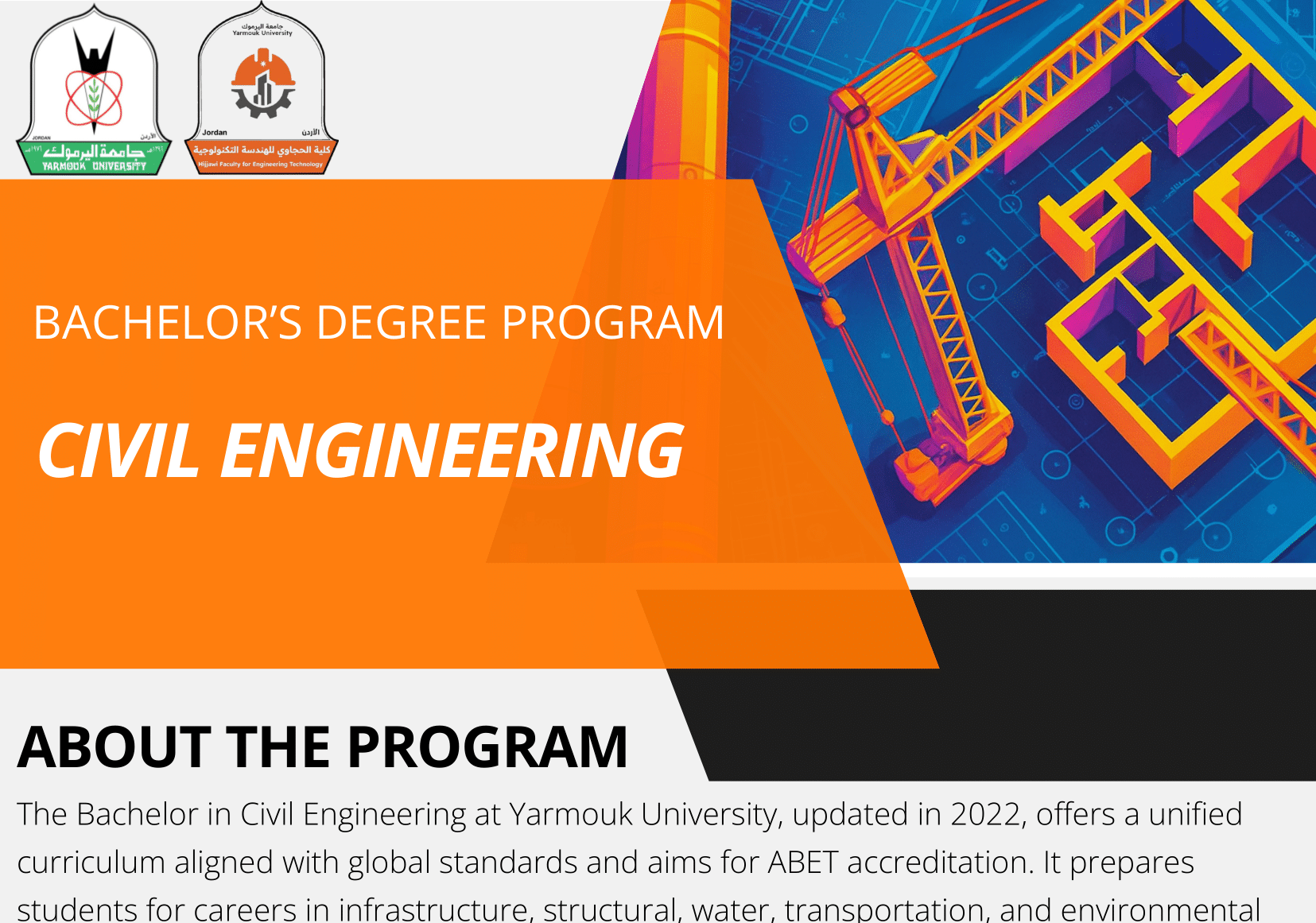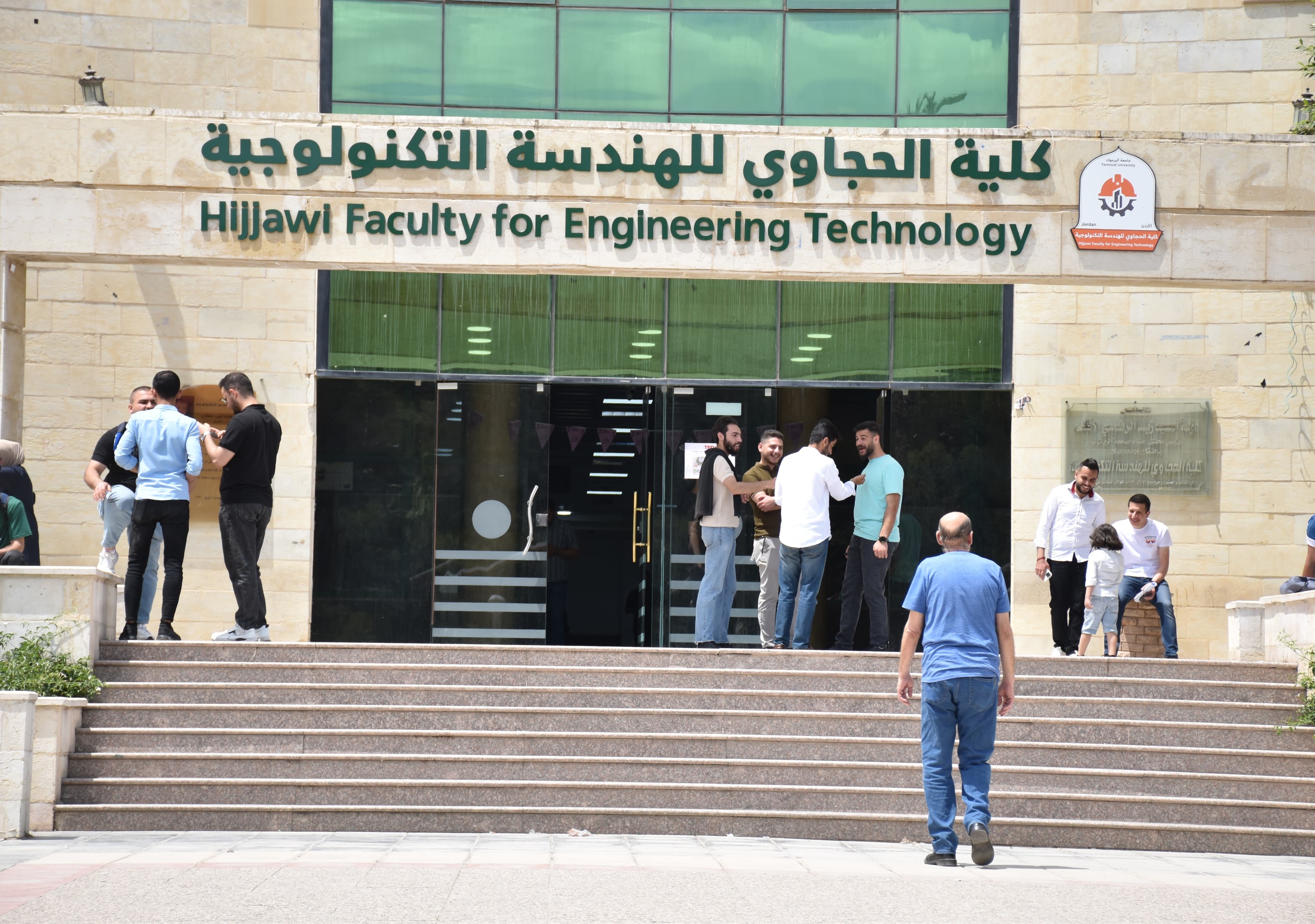Program Department and Chair
For inquiries or further information, please contact:
Email: civil.dept@yu.edu.jo
Phone: +962 2 721 1111 ext. 4523
Dr. Mu'ath Abu Qamar
Chair, Civil Engineering Department
Assistant Professor, Civil Engineering
AbuQamar.Muath@yu.edu.jo
+962 2 721 1111 ext. 4523
About the Program
The Bachelor in Civil Engineering degree program at the Hijjawi Faculty for Engineering Technology, Yarmouk University, was established in 2012. Initially offered with two academic tracks—Construction Management and Building Technology—the program was restructured and unified in 2022 under the updated title Bachelor in Civil Engineering. This revision reflects a strategic shift toward a more integrated and comprehensive curriculum that aligns with global industry standards. The program is scheduled to pursue ABET accreditation upon the graduation of the first cohort under the new program structure.
The program is designed to prepare students for impactful careers in infrastructure development, structural systems, water resources, transportation engineering, and environmental solutions. Students build a robust foundation in civil engineering principles while also developing practical skills in design, construction, analysis, and project management.
A key feature of the curriculum is its emphasis on applied learning and industry engagement. Students complete a two-month in-field practical training in professional engineering environments and a two-term graduation project that promotes innovation and real-world problem solving.
Continually updated to reflect advancements in technology, sustainability, and construction practices, the program fosters professional growth and adaptability. Graduates are well-equipped to contribute to the built environment through careers in public and private sectors—or to pursue advanced studies in specialized areas of civil and construction engineering.
Program Educational Objectives (PEOs)
Within a few years after graduation:
Enrollment Statistics
Study Plan
The Bachelor in Civil Engineering degree program consists of 167 credit hours, offering a comprehensive blend of theoretical knowledge and hands-on practical education. Core and advanced courses span key areas of civil engineering such as structural analysis and design, construction engineering, transportation systems, geotechnical engineering, hydraulics and water resources, and environmental engineering.
Students apply classroom knowledge through laboratory work in materials testing, fluid mechanics, soil mechanics, surveying, pavement design, and environmental systems. These labs reinforce core concepts and develop practical engineering skills.
A two-term graduation project is required, allowing students to tackle real-world engineering problems through research, design, or analysis. In addition, a mandatory two-month full-time field training provides valuable exposure to professional civil engineering environments.
In recognition of the global nature of the engineering profession, foreign language courses have been included in the curriculum to enhance graduates' employability—particularly with international companies and academic institutions.
This well-rounded and up-to-date study plan ensures that graduates are equipped with the skills, experience, and adaptability needed to succeed in the construction, infrastructure, and environmental sectors or to pursue advanced academic pathways.
Career Opportunities
-
Engineering design and supervision
-
Construction and project management
-
Water resources and environmental engineering
-
Transportation infrastructure and roadway design
-
Urban development and municipal planning
-
Scientific and applied research
Industrial Advisory Board
CEO
EGCA
Jordan
Awesome Engineering Technology Program
Learn more about the Bachelor in Civil Engineering degree program by exploring the materials provided here, and discover how we're shaping future-ready engineers through innovation, sustainability, and hands-on learning.



